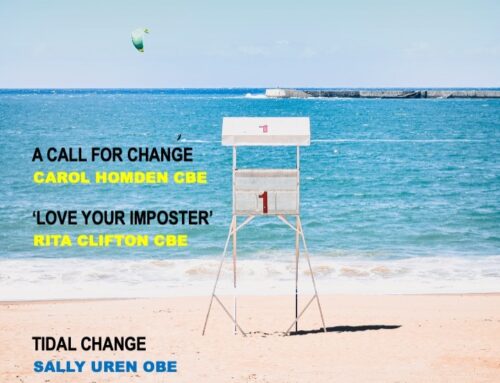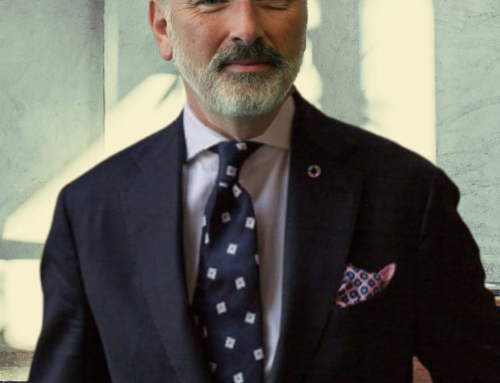A Call For Change

It is just over a year since Coram – the first dedicated children’s charity – published our Call for Change, a manifesto setting out what our experience working with children and young people was telling us were the policy priorities to make their lives better.
We thought the timing was auspicious, marking the 30th anniversary of the UK’s signature to the United Nations Convention on the Rights of the Child, the most ratified of all UN conventions, and 300 years since our founder, Thomas Coram, began his campaign to create this charity then called the Foundling Hospital to support abandoned children.
Even at the time of publication, we were acutely aware that children’s chances in life are still determined by where they live and who they live with local authority services challenged by rising numbers of children entering care and growing levels of education exclusion. There were already considerable worries around anxiety and self-harm and 120,000 undocumented children and, on every available measure, the pandemic has made a worsening situation even worse.
The closure of schools has been unprecedented since the Second World War. And, as the weeks and months have passed, risks – to safety, access to food and security, education and wellbeing – have become ever more evident and ever more pressing.
If you lose six months learning when you are six because your school is closed, how can the building blocks for future success be in place? If you cannot find your way out of your teenage bedroom, will you be able to embrace the future in society? If you feel that the world has turned its back on you because there are no job opportunities when you leave care, will you be able to care back?
If you are born into a household characterised by stress, domestic violence, alcohol and drug misuse, the consequences for your neurological and emotional development may be long term. If court proceedings are delayed, you may – if you need it – lose your chance for adoption forever, since a child’s chance of adoption decreases by 25% each year.
Research evidence is mounting which quantifies that the impacts fall disproportionately on children who access free school meals. This is not just a lack of access to technology – although clearly one phone cannot easily be split between three children – or of the money to pay for that bandwidth or the impact of poverty, but loss of the atmosphere and encouragement of learning, of routines and rhythms of school and family life which enable children to feel secure enough to face the future.
I have little doubt that the long term impact of the pandemic will fall substantially on the young, unless we act now. When demand exceeds supply in most markets, supply is increased. The challenge of our times is that supply is not being increased at anything like the rate needed, with the childcare sector in a fragile state and young people waiting months for appointments or suitable placements. The level of catch-up funding announced by the government falling well short of the level that is needed and being applied in other countries.
So we need to rise to the challenge. As a distinctive group of specialist charities and consultancies covering adoption and fostering, education and early years, children’s rights and voice, sector insight and capacity, Coram is focused on delivering direct services for individuals, championing access to justice and addressing need and building the capacity that the system needs to create better chances for children.
We will continue doing what we have always done – supporting the young people who need it most. I have been inspired by the work of our teams who have maintained services through lockdown, moving to remote working and digital delivery to ensure ongoing help was going to the families we support across therapy and family support, advocacy, advice and curriculum and reading resources.
Whilst our reading volunteers – many aged over 50 – were unable to visit schools to provide the essential face-to-face encouragement to those falling behind, so we created new resources with the support of our partner, the Very group, supporting children in the home. Such partnership support is essential to ensuring that children and young people can access help but it is also clear that the government has to make children a far higher priority than they have to date.
Whilst, government has acted on a huge scale to protect jobs and keep businesses afloat during the pandemic and, earlier this year, the Prime Minister Boris Johnson promised that “no child will be left behind” , there is yet to be the same level of ambition or proportionate investment needed to support the next generation. The return on investment in children and young people may be longer term but is no less essential to the future prospects of the nation.
Coram, along with colleagues in the children’s sector, is calling for children to be put at the heart of national recovery and we shall not rest until this happens, and every child has the best possible chance in life through innovation as well as sustained delivery.
The National Audit Office report of 2019 on local authority service delivery, identified that 50% of the variation in outcomes for children in different regions could be explained by demographic and economic factors – the rest being down to variable quality of services. For me, this says there is much we can achieve in aiming to close that gap– it is in our control.
We have therefore formed the Coram Innovation Incubator to foster entrepreneurship and create more radical change. The Incubator brings together founding local authorities and Coram’s corporate partners Microsoft, EY and PA Consulting to innovate in product, process and performance. Together we are identifying challenges malleable to change, such as the shortage of foster carers, and the potential for technological outreach to engage young people at risk of exploitation and working to create new solutions.
We have a proud tradition of corporate engagement and volunteer action in this country, and together we can make the difference through the collective power of individual and organisational action. As Thomas Coram wrote: “I believe everyone ought in duty to do any good they can.” Will you join us?
Dr Carol Homden CBE
Group Chief Executive
www.coram.org.uk
Twitter: @Coram
Facebook: Coramsince1739
Instagram: coram.uk


A Call For Change

It is just over a year since Coram – the first dedicated children’s charity – published our Call for Change, a manifesto setting out what our experience working with children and young people was telling us were the policy priorities to make their lives better.
We thought the timing was auspicious, marking the 30th anniversary of the UK’s signature to the United Nations Convention on the Rights of the Child, the most ratified of all UN conventions, and 300 years since our founder, Thomas Coram, began his campaign to create this charity then called the Foundling Hospital to support abandoned children.
Even at the time of publication, we were acutely aware that children’s chances in life are still determined by where they live and who they live with local authority services challenged by rising numbers of children entering care and growing levels of education exclusion. There were already considerable worries around anxiety and self-harm and 120,000 undocumented children and, on every available measure, the pandemic has made a worsening situation even worse.
The closure of schools has been unprecedented since the Second World War. And, as the weeks and months have passed, risks – to safety, access to food and security, education and wellbeing – have become ever more evident and ever more pressing.
If you lose six months learning when you are six because your school is closed, how can the building blocks for future success be in place? If you cannot find your way out of your teenage bedroom, will you be able to embrace the future in society? If you feel that the world has turned its back on you because there are no job opportunities when you leave care, will you be able to care back?
If you are born into a household characterised by stress, domestic violence, alcohol and drug misuse, the consequences for your neurological and emotional development may be long term. If court proceedings are delayed, you may – if you need it – lose your chance for adoption forever, since a child’s chance of adoption decreases by 25% each year.
Research evidence is mounting which quantifies that the impacts fall disproportionately on children who access free school meals. This is not just a lack of access to technology – although clearly one phone cannot easily be split between three children – or of the money to pay for that bandwidth or the impact of poverty, but loss of the atmosphere and encouragement of learning, of routines and rhythms of school and family life which enable children to feel secure enough to face the future.
I have little doubt that the long term impact of the pandemic will fall substantially on the young, unless we act now. When demand exceeds supply in most markets, supply is increased. The challenge of our times is that supply is not being increased at anything like the rate needed, with the childcare sector in a fragile state and young people waiting months for appointments or suitable placements. The level of catch-up funding announced by the government falling well short of the level that is needed and being applied in other countries.
So we need to rise to the challenge. As a distinctive group of specialist charities and consultancies covering adoption and fostering, education and early years, children’s rights and voice, sector insight and capacity, Coram is focused on delivering direct services for individuals, championing access to justice and addressing need and building the capacity that the system needs to create better chances for children.
We will continue doing what we have always done – supporting the young people who need it most. I have been inspired by the work of our teams who have maintained services through lockdown, moving to remote working and digital delivery to ensure ongoing help was going to the families we support across therapy and family support, advocacy, advice and curriculum and reading resources.
Whilst our reading volunteers – many aged over 50 – were unable to visit schools to provide the essential face-to-face encouragement to those falling behind, so we created new resources with the support of our partner, the Very group, supporting children in the home. Such partnership support is essential to ensuring that children and young people can access help but it is also clear that the government has to make children a far higher priority than they have to date.
Whilst, government has acted on a huge scale to protect jobs and keep businesses afloat during the pandemic and, earlier this year, the Prime Minister Boris Johnson promised that “no child will be left behind” , there is yet to be the same level of ambition or proportionate investment needed to support the next generation. The return on investment in children and young people may be longer term but is no less essential to the future prospects of the nation.
Coram, along with colleagues in the children’s sector, is calling for children to be put at the heart of national recovery and we shall not rest until this happens, and every child has the best possible chance in life through innovation as well as sustained delivery.
The National Audit Office report of 2019 on local authority service delivery, identified that 50% of the variation in outcomes for children in different regions could be explained by demographic and economic factors – the rest being down to variable quality of services. For me, this says there is much we can achieve in aiming to close that gap– it is in our control.
We have therefore formed the Coram Innovation Incubator to foster entrepreneurship and create more radical change. The Incubator brings together founding local authorities and Coram’s corporate partners Microsoft, EY and PA Consulting to innovate in product, process and performance. Together we are identifying challenges malleable to change, such as the shortage of foster carers, and the potential for technological outreach to engage young people at risk of exploitation and working to create new solutions.
We have a proud tradition of corporate engagement and volunteer action in this country, and together we can make the difference through the collective power of individual and organisational action. As Thomas Coram wrote: “I believe everyone ought in duty to do any good they can.” Will you join us?
Dr Carol Homden CBE
Group Chief Executive
www.coram.org.uk
Twitter: @Coram
Facebook: Coramsince1739
Instagram: coram.uk





